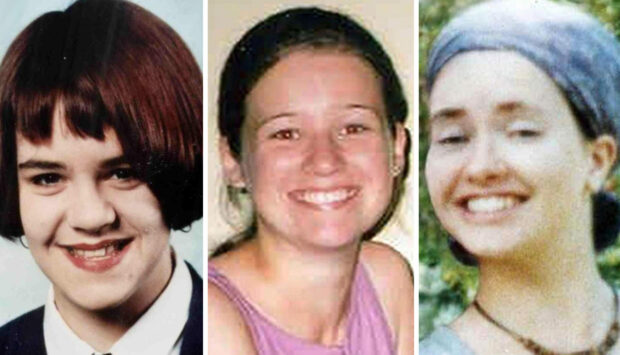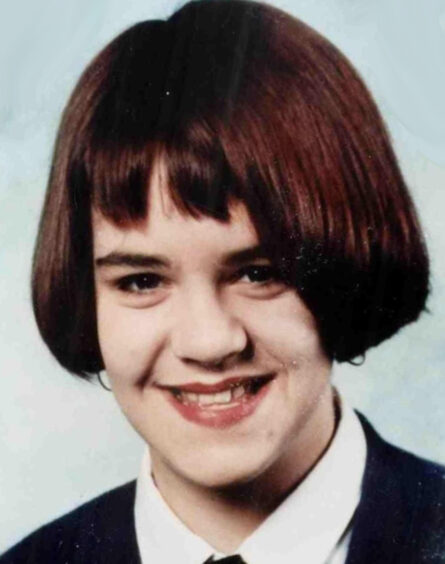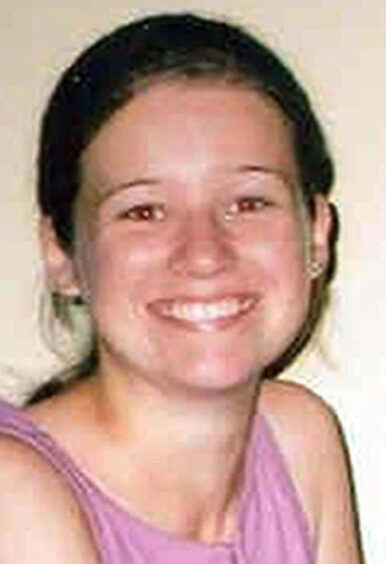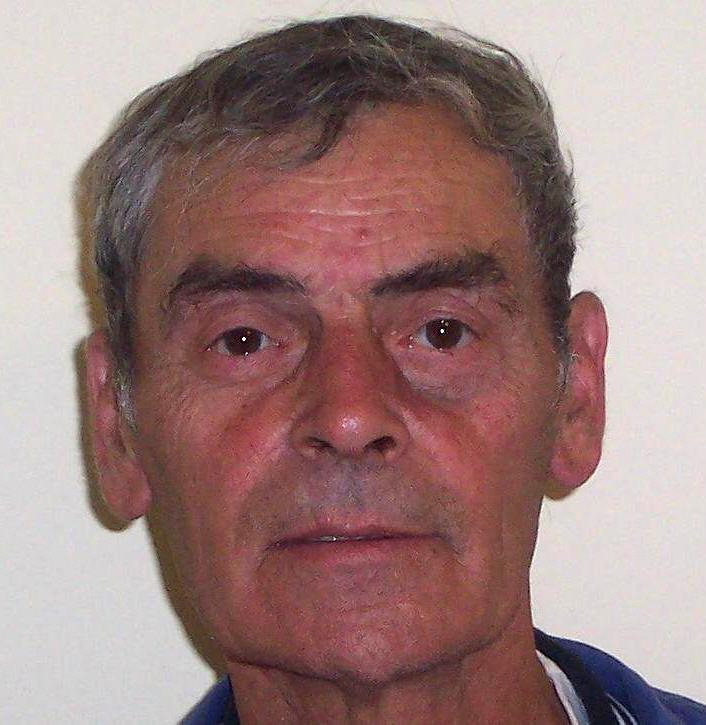
The family of a teenager suspected to have been murdered by serial killer Peter Tobin yesterday said his death means they will never know her fate.
Nicola Stork, whose sister Louise disappeared from Eastbourne in 1988 when she was 18, said Tobin was evil for ignoring her pleas to give up his secrets.
Tobin, 76, died at Edinburgh Royal Infirmary at 6am yesterday after being transferred there from HMP Edinburgh on Wednesday. He was serving three life sentences for the rape and murder of 23-year-old Polish student Angelika Kluk in Glasgow in 2006 and the murders of 15-year-old Vicky Hamilton of Redding, near Falkirk in 1991 and 18-year-old Dinah McNicol.
He had previously served 10 years for raping two 14-year-old girls in Hampshire and is suspected of killing other women, including Louise Kay.
Her sister Nicola, 56, from Eastbourne, who was 22 when she disappeared, said: “We would have liked to have known the truth before he died but we will never know now, unless her remains are found, which is unlikely.
“We are fairly convinced Tobin was responsible for Louise’s death. He’s an evil man who gave no thought to anybody. I’m pleased he’s dead but our family still needs answers.”
David Wilson, emeritus professor of criminology at Birmingham City University, said Tobin was notoriously secretive and was never likely to reveal his crimes.
He said: “It’s only in the movies that the killer on their deathbed wants to make peace with the world and unburden themselves of crimes they have committed. In my experience, mass murderers and serial killers are uncommunicative, which allows them to keep a bit of power and control over the narrative of what they’ve done and what they might have done.
“It also ensures we’re always talking about them because now there will be speculation as to what other crimes Tobin has committed.
“Peter Tobin was, in a secular sense, evil. He never showed remorse, he abused trust – particularly in the murder of Angelika Kluk and Dinah McNicol – he used sadism, and of course he was never prepared to accept responsibility for what he did. He pleaded not guilty in each murder trial. He was an innately evil man.
“He wasn’t just silent and uncommunicative about the crimes he committed, he was silent and uncommunicative about every aspect of his life, which makes it difficult to form a view about what put him on the path he took which led to three people losing their lives. There’s no empirical evidence because Tobin refused to talk.
“The drifting he did, that geographic transience, was another reason he was able to evade justice. He moved from one place to another which meant he put his offending behind him, making it difficult for police to join the dots. He was very calculating.
“Geographically transient serial killers tend to have a longer cycle than geographically stable serial killers who kill in the one place. There’s every chance he may have killed others.”
The family of Vicky Hamilton said they hope others who suspect Tobin of killing their loved one get closure.
“If he has taken more victims, our hearts go out to their families and can only wish one day they get the closure they so badly deserve,” they said in a statement. “We will not be celebrating any passing but instead will be remembering Vicky, Angelika and Dinah along with any other victims, and we respectfully ask for others to do the same.”
Police had attempted to get Tobin to give them information about the further crimes he is suspected of. Detective Chief Superintendent Laura Thomson, head of major crime at Police Scotland, said: “Attempts to encourage him to do the right thing and share any knowledge he may have which could assist the police were unsuccessful.
“While we have no current lines of investigation into Tobin, we welcome any information in relation to his activities.”
Officers believe Tobin will have killed others and had at least 40 aliases and 150 cars during his life to cover his tracks as he targeted vulnerable women.
Born in August 1946 in Johnstone, Renfrewshire, Tobin’s life of crime began after he was sent to a reform school at the age of seven. In his teens and early 20s he served jail terms for burglary, forgery and conspiracy, before he was convicted of the rape of two 14-year-old girls he plied with alcohol and drugs.
Tobin was also a wife beater, with all three of his former spouses claiming he viciously attacked them.
It was only after the murder and rape of Angelika Kluk in 2006 that Tobin’s double life began to unravel. Tobin stabbed and gagged her before hiding her remains beneath the floorboards of St Patrick’s Church in Anderston. He was jailed for at least 21 years in May 2007.
Veteran cold case detectives noticed that Tobin had been living in Bathgate at the time 15-year-old Vicky Hamilton disappeared in 1991 and searched the properties where the drifter had lived over the years.
The body of Vicky – Tobin’s first known murder victim – and that of 18-year-old Dinah McNicol were unearthed 17 years after the girls disappeared. He had abducted Vicky in Bathgate, West Lothian, on the evening of February 10, 1991, while she waited for a bus. He drugged her, strangled her, carried out a serious sex attack and murdered her.
Tobin received a life sentence with a minimum term of 30 years for Ms Hamilton’s killing after a trial at the High Court in Dundee at the end of 2008. A year later, he was convicted of the murder of McNicol, who he picked up when she was hitchhiking home to Essex after a music festival.
Operation Anagram is thought to have looked at dozens of cases, including the mysterious Bible John murders in Glasgow between 1968 and 1969. Patricia Docker, 25, Jemima McDonald, 32 and Helen Puttock, 29, were all murdered.
Other cases may include the murders of art student Jessie Earl, 22, who disappeared in Eastbourne, in 1980, law student Pamela Exall, 22, who disappeared in Norfolk in 1974 and schoolgirl Patricia Morris, 14, who went missing in Essex in 1980. Detectives scaled down Operation Anagram in 2011 but stressed it would never end.
Remember them, not him
Peter Tobin was convicted of murdering three young women but suspected of killing several more. His death leaves many families in limbo, their questions unanswered.
Today, we should not waste a thought on him, only his victims
Vicky Hamilton

The teenager was last seen in Bathgate on a snowy February in 1991 while making her way home to Redding near Falkirk after spending the weekend with her sister.
Her family said they would always remember their “warm, clever, generous” 15-year-old. Vicky’s sister Lindsay Brown said: “Vicky was much more than a girl who was abducted and killed by a stranger, or the girl on a missing poster. Our sister was a warm, clever, generous girl who shared many happy years with us.”
Her family also paid tribute. They said: “We remember Vicky, we remember her laughter, her smile, and we want to keep that memory.”
Angelika Kluk

Angelika was a 23-year-old Polish student who moved to Scotland to save up money for a university course in her home country.
She was spending her second summer at St Patrick’s Church in Glasgow while on holiday from Gdansk University in 2006.
Dr Hieronim Chojnacki, of the university’s languages department, said: “I knew Angelika well, she was studying Norwegian.
“She was a highly promising student, extremely intelligent, very popular, and a nice, kind, religious person.
“It’s an absolute tragedy to lose someone who stood out so much. She had her whole life ahead of her.”
Dinah McNicol

Student Dinah was hoping to go to university when she was last seen hitchhiking home from a music festival in Liphook, Hampshire.
The 18-year-old hitched a lift home from the Torpedo Town music festival on August 6, 1991 with friend David Tremlett.
She was heading home to pick up her A-level results before hopefully going to university. Melanie Gulliver, her French teacher, said: “Dinah was a conscientious pupil who always tried her best.”
Penny Vaughan, Dinah’s teacher, said: “It’s terribly sad to think of the bright future she would have had if she had not been so very unlucky to be in the wrong place at the wrong time.”

Enjoy the convenience of having The Sunday Post delivered as a digital ePaper straight to your smartphone, tablet or computer.
Subscribe for only £5.49 a month and enjoy all the benefits of the printed paper as a digital replica.
Subscribe